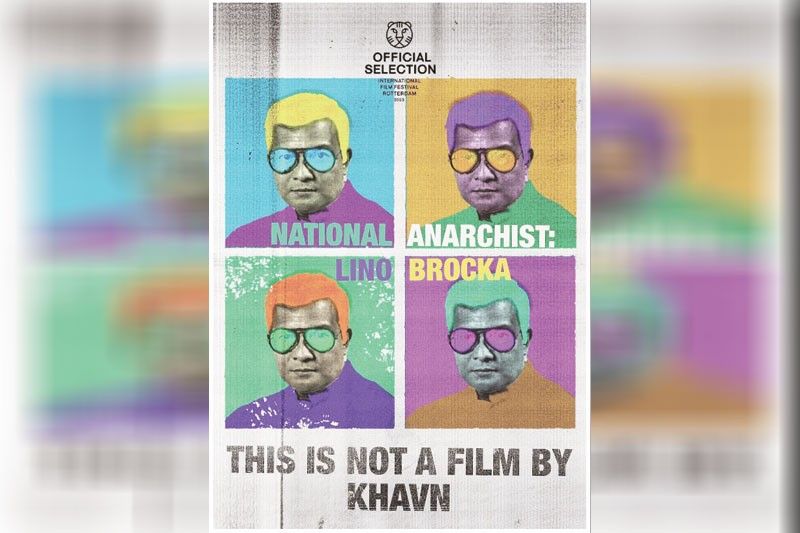Lino Brocka, National Anarchist: Archivist’s delight


Screened early this year at the Rotterdam film festival, Khavn dela Cruz’s Lino Brocka, National Anarchist had a run at the recently concluded QCinema festival, every bit a tribute to the late filmmaker who never lost his common touch nor his flair for understated melodrama, the mongrel poet counterpart to his fellow national artist Ishmael Bernal’s philosopher king.
Khavn splices together footage from any of Brocka’s 60 odd films through less than three decades, and comes up with a rough narrative of the life and times of an agent provocateur known as much for his incendiary statements as well his depiction of Philippine slums long before the term poverty porn was invented. The antidocumentary also peddles the rather wild conspiracy theory that perhaps the director’s death by car crash on East Avenue in the wee hours in the summer of 1991 was no accident. But the antifilm mode precludes Khavn from having to ask Alan Paule, lead actor in Brocka’s last film Macho Dancer, who was with Brocka that fateful night in May, about it.
The splicing together is enough work and research as it is, an archivist’s delight, such that viewer is treated to a gallery of footage while trying to identify from which Brocka film they originated, driven on by pegs that are famous or infamous quotes from the director and spiced with music by Khavn’s house band The Brockas.
The happy childhood with a present father and the Brockas singing nakalimutan ko na in background, how the art of forgetting is hardest to forget. Bayan Ko playing as sequences of rape are shown on screen may upset feminists, too obvious an objective correlative. A kundiman that starts off with taxi dancers then assorted couples in the throes of ecstasy is well crafted though verging on an X rating.
Action sequences and shootouts, cat naps and death throes, all point to the young filmmaker’s consummate craftsmanship that revolutionizes the concept of cinema with Lettrist-like inroads, even if it sometimes feels like we are left holding the bag of found reels and disjointedly profound audiovisuals.
Most identifiable of the Brocka movies is the unofficial trilogy from the mid-‘70s, Tinimbang Ka Ngunit Kulang, Maynila sa Kuko ng Liwanag and Insiang. The sequence of the leper played by Mario O’Hara luring the town fool Kuala with a baby rattle, and Kuala herself wetting her pants before amused villagers.
Bembol Roco as Julio Madiaga at a street corner in Binondo and in a Sta Cruz motel with ladylove Hilda Koronel as Ligaya, a timely reminder of her classic beauty. Tommy Abuel as Paul the best friend who after four beers stubs his cigarette on his open palm before telling Madiaga the bad news, Ligaya’s gone. The lecher Ruel Vernal waiting to strike at Hilda as Insiang, while Mona Lisa can’t fathom how Vernal would prefer her daughter.
There is, of course, more where that came from, such as Dolphy smelling the clothes of his departed ward Niño Muhlach in Ang Tatay Kong Nanay, the swashbuckling young rebel Aga Muhlach in Miguelito, an uber sexy Jacklyn Jose in White Slavery and the long-lost Emily Loren taking a shower in the same film, a glimpse of Claudia Zobel’s tongue in a kissing scene in Bayan Ko Kapit sa Patalim, Phillip Salvador frantically driving to the hospital to rush an injured son in Cain at Abel.
National Anarchist may not be your conventional idea of a documentary, but it mines the wealth and breadth of Brocka’s impressive work, and like its subject inspires a special mayhem. It’s the closest cinema can get to literature, and vice versa.
The showstopper is the Brockas’ composition that has titles of Brocka’s movies as lyrics, a post-punk rendering that can only draw the listener in. Comparable too to the nationalist song that the state agent character Soliman Cruz half recites and half sings while dragging a hogtied Roeder Camañag around the room of a safehouse at the end of Lav Diaz’s Death in the Land of Encantos.
No tour de force but you get the drift because it sticks. National Anarchist is something the Brocka scholar Joel David in wintry South Korea would shed a tear or two over, before tears freeze as they hit the ground.
- Latest
- Trending
































